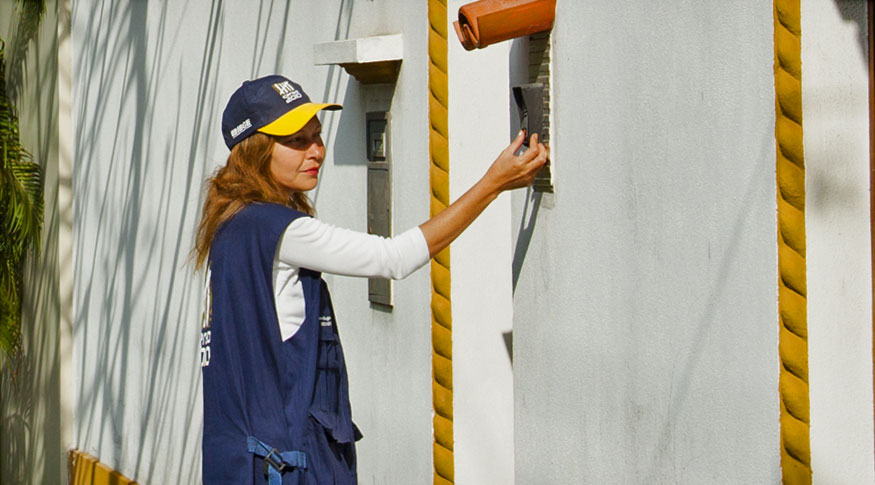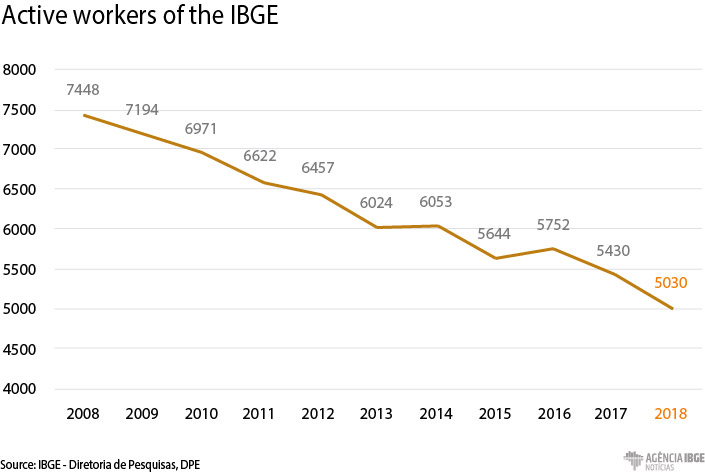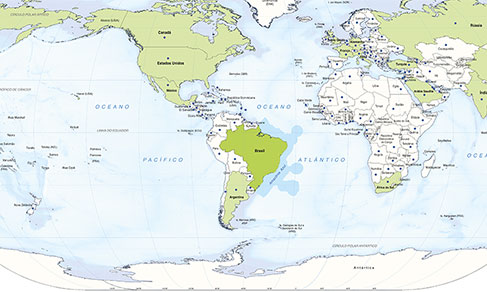Transparency
Shortage of human resources in IBGE threatens production of strategic information for the country
November 12, 2018 10h30 AM | Last Updated: November 16, 2018 03h04 PM

Day after day, the Brazilian Institute of Geography and Statistics (IBGE) features the TVs, radios, cell phones and computers of Brazilians: News based on more than 50 surveys with information on labor market, economic activities and living conditions of the population.
The production of such information depends on financial, technological and, mainly, human resources. As of 2008, the IBGE has lost more than 2,400 servants, equivalent to one-third of its total. This situation may be further worsened, leading to a deadlock, as currently more than a third of IBGE's staff is already entitled to retirement. This crisis threatens the entire work plan of the Institute, including the implementation of the 2020 Population Census, which is already under development.
The indicators produced by the IBGE are used for investments and policy-making in the three levels of government. Some examples: the official inflation index (IPCA), which adjusts the SELIC rate and the targets of the Central Bank; the quarterly and annual GDP for the country, its states and each of its 5,570 municipalities; the monthly and annual monitoring of agricultural production, helping to control supply and inflation; studies on the population fertility and mortality, serving as a basis for investments in Education, Health, Housing and Public Security, as well as for the distribution of State and Municipal Revenue Sharing Funds by means of the Brazilian Court of Audit (TCU).
One-third of servants have retired but not been replaced
Between 2008 and 2018 (see the graph below), the IBGE had a 32.5% reduction in its workforce. Replacements made by some hiring processes (competitive examinations) and the technical, administrative and technological redesign during this period sought to reduce those losses, but now, given the severe reduction in the number of servants, only a new competitive examination can solve this deadlock.

According to IBGE's Executive Director, Fernando Abrantes, the shut down of agencies leads to higher trip costs and delays in collection schedules, as well as to difficulties in expanding the scope of important surveys, such as the IPCA, for example.
Staff reduction can be even more serious when you consider that at least 36% of the current workers are already eligible for retirement. For the IBGE president, Roberto Olinto Ramos, "if part of the retirements take place, it is very likely that we will reach the middle of 2019 with well under 4,000 employees."
The drastic reduction of human resources is already evident in the IBGE agency network, which is responsible for household interviews and the monthly information collection with rural companies and producers. This network provides the necessary capillarity for the Institute's statistical and geographical operations, since Brazil is a very large country.
Of a total of 583 agencies, 232 already operate with only two servants, increasing the chances of not keeping the administrative and technical routines. Another 61 agencies have only one servant and are at risk of closing their doors in the coming months. In the last four years, 16 IBGE agencies were shut down, as the servants in charge retired and there was no one to substitute them.
2020 Census needs budget amendments that are in Congress
Throughout its 82 years of work, the IBGE has become an international benchmark, also in terms of technology, as it was the first statistical institute in the world to carry out a fully digital and georeferenced Population Census in 2010. Since then, such technology has been exported to several countries, through international cooperation programs.
"The Population Census is the only survey that can deliver results for municipalities, districts, and neighborhoods. It is not possible to implement housing, sanitation, educational policies and the like, at the municipal level, without such information. It is the Census that allows us to get to know the sociodemographic characteristics of the population in the most detailed geographic cohorts," emphasizes IBGE Survey Director Claudio Crespo.
But the conduction of the 2020 Population Census is threatened, in view of the retirement avalanche without replacement with new staff. Since 2017, the IBGE Board of Directors has been undertaking actions to make it possible to hold a competitive examination to hire 1,800 servants, an essential measure to prevent the discontinuance of the Institute's essential activities. However, to date, no authorizations have been granted for the required demands.
The IBGE has also been trying to persuade the National Congress to accept and approve the parliamentary amendments that increase the budget for staff replacement and for the 2020 Census' activities.
"The IBGE claims for the support of public and private institutions, researchers, associations and society in general so that the amendments can be accepted and approved," says the Survey Director.
Not carrying out the Population Census could harm the Institute and ruin Brazil's international reputation
Brazil has conducted the Population Census since it was an Empire and the IBGE has been responsible for the operation since 1940.
Failure to carry out the Census in 2020 would cause serious damage, since it would make it impossible to update the demographic and socioeconomic reality of Brazilian municipalities. In addition, it would also have an impact on the production of IBGE's continuous information, which is based on surveys whose samples are updated and adjusted by the results of the Census.
Roughly speaking, there would be a loss in the calculation of the factors for the division of the Municipal Revenue Sharing Fund and the updating of public policies, such as Bolsa Família (Family Grant) and the goals of the National Education Plan, for example.
Furthermore, it would represent the noncompliance with Law No. 8,184 / 91 by the Brazilian State, which determines the decennial conduction of the Population Census.
Internationally, failure to carry out the Census would also pose risks to the image of Brazil, which keeps strategic international commitments grounded on the production of social and economic indicators, most of which come from the Census.
Brazil has obligations with regard to the dissemination of data to the International Monetary Fund (IMF), the United Nations Statistics Division (UNSD) and the Organization for Economic Cooperation and Development (OECD), among others, which would be compromised.
We are also committed to the 2030 Agenda - the United Nations Sustainable Development Goals, signed by Brazil. This requires a great effort to structure the national statistical system, in order to meet the demands for 240 different social, environmental and economic indicators to monitor the achievement of the goals. The absence of the 2020 Population Census would hinder a significant number of those indicators.



















